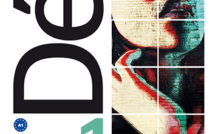

In this section of Campus, EuropeNow features a selection of scholarly articles and books on topics pertinent to the teaching of Europe or teaching in Europe that were published within the last 5 years. This dynamic bibliography, with monthly installments, seeks to highlight both pedagogy research as well as critical analyses of debates taking place in higher education in and about Europe.
If you are interested in reviewing any of the books featured in any of our Campus Round-Ups, please contact our Research and Pedagogy Chair, Hélène Ducros, at helene@alumni.unc.edu
1. Experiences of Academics from a Working-Class Heritage: Ghosts of Childhood Habitus
By Carole Binns
This book is a twist on the current discourse around ‘inclusivity’ and ‘widening participation’. Higher education is welcoming students from diverse educational, social, and economic backgrounds, and yet it predominantly employs middle-class academics. Conceptually, there appears, on at least these grounds alone, to be a cultural and class mismatch. This work discusses empirical interviews with tenured academics from a working-class heritage employed in one UK university. Interviewees talk candidly about their childhood backgrounds, their school experiences, and what happened to them after leaving compulsory education. They also reveal their experiences of university, both as students and academics from their early careers to the present day. This book will be of interest to an international audience that includes new and aspiring academics who come from a working-class background themselves. The multifaceted findings will also be relevant to established academics and students of sociology, education studies and social class.
Book available from Cambridge Scholars Publishing here
2. Reinventing Europeans through History, Art and Cultural Learning
By the Nordic Center of Heritage Learning and Creativity, with Euracademy, Provincia di Livorno Sviluppo, The Greek Forum for Refugees, University College of Southeast Norway, Izobrazevalni Center Geoss d.o.o., and Jamtli Foundation
The Reinventing Europeans through History, Art and Culture Learning project (REHAC Learning) is a collaboration between partners from Greece, Italy, Slovenia, Norway and Sweden and aims at investigating, designing and delivering new and effective ways of strengthening the skills of the educators who train and support refugees. At the same time, it seeks to enhance the basic skills, key competences and language competencies of the refugees themselves. It will reach this goal by exploiting the learning possibilities offered by culture, the arts and history with a strong focus on the life experiences of the learners. The project’s outcome will consist in new learning methodologies, materials and tools that can be easily used and modified by the educators in order to fit the learning needs of the refugees in the best possible ways. Teachers and adult learning providers are meeting increasing challenges due to the diverse, multicultural groups of students who undertake learning with them at all levels of education. Managing such diverse learning groups requires new skills and an increased awareness of the challenges that the students are facing. This project aims to assist educators in reviewing and enhancing their teaching skills and wants to encourage them to use innovative methodologies based on experiential learning.
3. Teaching and Learning About Diversity and Social Justice at the Graduate Level: Students’ Attitudes Toward Classroom Sharing
By Elizabeth Rupert and Audrey Falk
This paper explores student participation in dialogue in two sections of a master’s level course in diversity and social justice. The researchers, including a student from the course and the instructor of the course, analyzed responses to a brief survey and transcripts from student focus groups. Three major themes relevant to students’ attitudes about classroom sharing emerged, including students’ nature; students’ perceptions of their expertise; and students’ concerns about being judged. Recommendations for creating classroom environments that facilitate open exchange are offered.
Article available in Multicultural Perspectives here
4. Gender Approaches in the Translation Classroom: Training the Doers
By Marcella De Marco and Piero Toto (eds.)
This volume examines strategies for embedding gender awareness within translation studies and translator training programmes. Drawing on a rich collection of theoretically-informed case studies, its authors provide practical advice and examples on implementing gender-inclusive approaches and language strategies in the classroom. It focuses on topics including, how to develop gender-inclusive practices to challenge students’ attitudes and behaviours; whether there are institutional constraints that prevent trainers from implementing non-heteronormative practices in their teaching; and how gender awareness can become an everyday mode of expression. Positioned at the lively interface of gender and translation studies, this work will be of interest to practitioners and scholars from across the fields of linguistics, education, sociology and cultural studies.
Book available from Palgrave MacMillan here
5. The Insider’s Guide to Working with Universities: Practical Insights for Board Members, Businesspeople, Entrepreneurs, Philanthropists, Alumni, Parents, and Administrators
By James W. Dean Jr. and Deborah Y. Clarke
Colleges and universities stand to benefit greatly when businesspeople engage with them, whether through governing boards, alumni associations, consulting arrangements, philanthropy, or other channels. But many businesspeople are frustrated by the way institutions of higher education work–or rather, how they don’t work. Why do decisions in universities take so long and involve so many people? Why aren’t profit and growth top priorities for colleges? Why can’t the faculty be managed like any other employees? Shouldn’t alumni have a greater say as they continue to invest in their alma mater?
Book available from the University of North Carolina Press here
Photo: STUTTGART, GERMANY – OCTOBER 23: Book lovers visit the new municipal public library | Shutterstock
Published on April 28, 2020.




